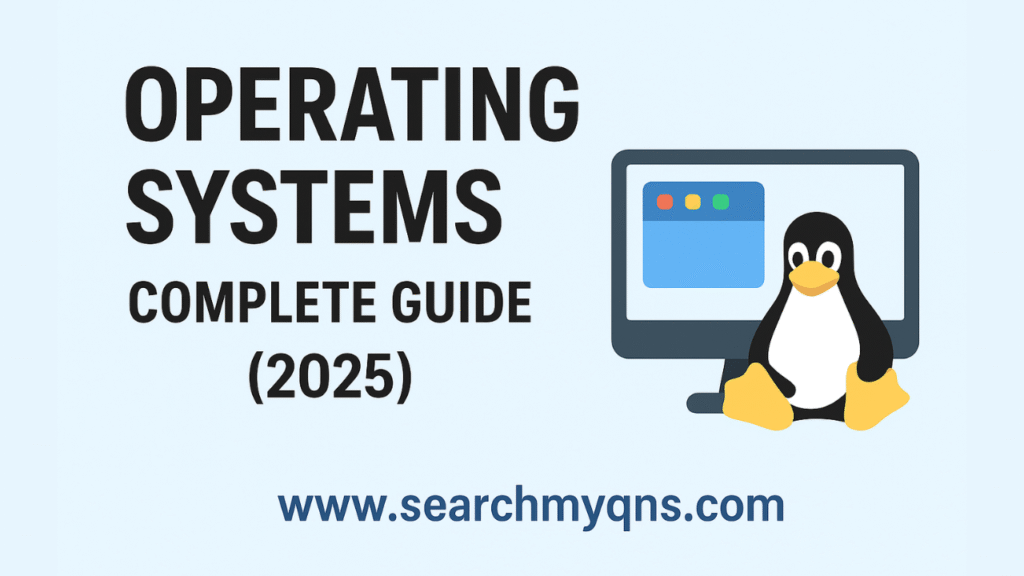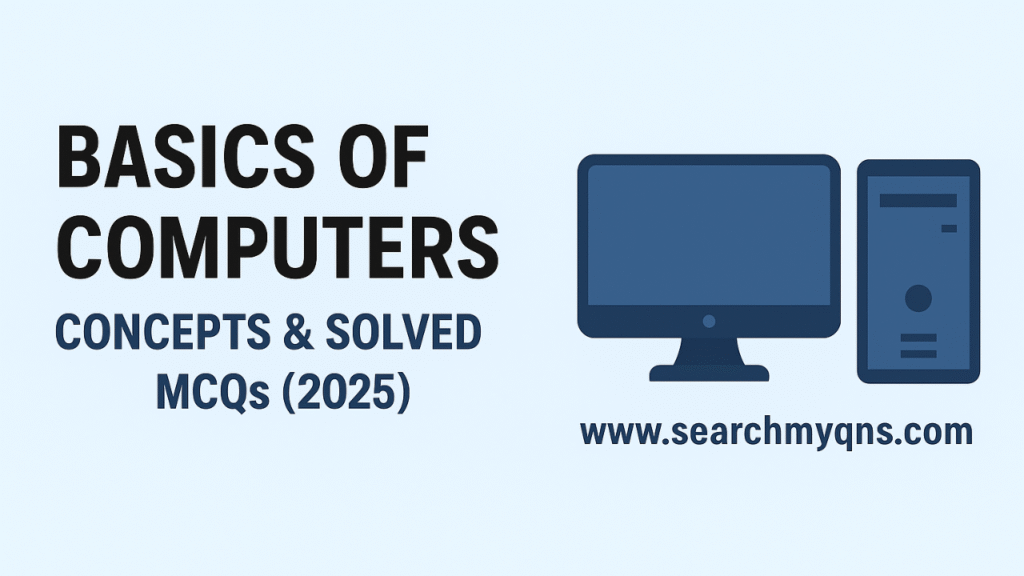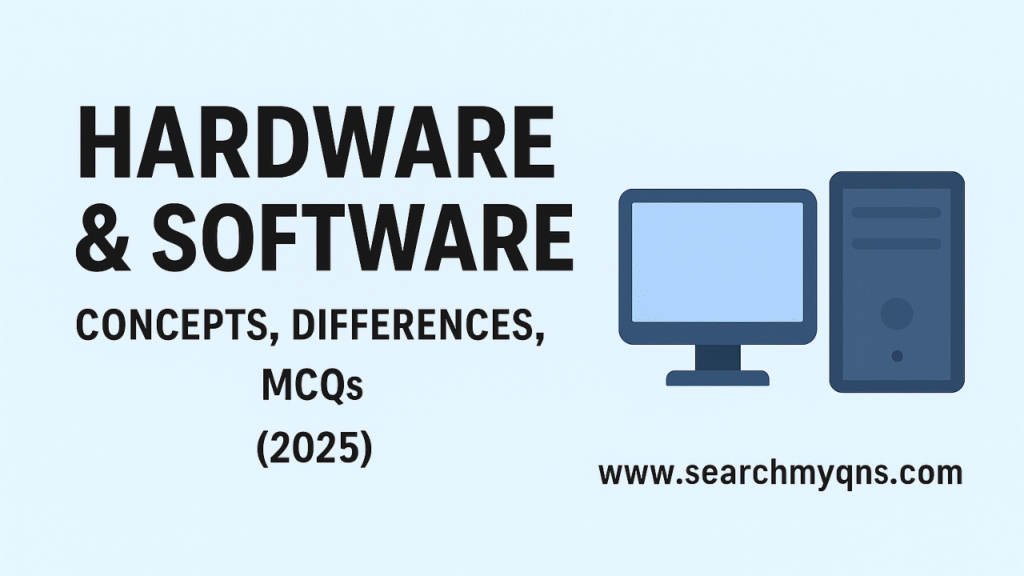Operating Systems: Complete Guide for Technical Preparation (2025)
The Operating System (OS) is one of the most important topics in computer fundamentals, especially for competitive exams, technical interviews, and job assessments. A solid understanding of OS concepts helps you answer theoretical as well as practical questions related to system performance, memory, processes, and security.
In this guide, we’ll cover concepts, types, functions, solved examples, and MCQs to master Operating Systems for exams like SSC, Banking IT, GATE, UGC NET, and more.
What is an Operating System?
An Operating System (OS) is system software that acts as an interface between computer hardware and the user.
It manages hardware resources like CPU, memory, storage, and devices, while also providing a platform for applications to run.
Examples of Operating Systems:
- Windows
- Linux
- macOS
- Android
- iOS
Key Functions of an Operating System
Process Management
Scheduling, multitasking, and synchronization of processes.
Memory Management
Allocation, swapping, and virtual memory handling.
File Management
Creation, storage, retrieval, and security of files.
Device Management
Handling input/output devices using drivers.
Security & Access Control
Authentication, authorization, and encryption.
User Interface
CLI (Command Line Interface) & GUI (Graphical User Interface).
Types of Operating Systems
- Batch Operating System – Jobs are executed in batches.
- Time-Sharing OS – Multiple users share system resources simultaneously.
- Distributed OS – Manages group of computers working together.
- Network OS – Provides networking capabilities between computers.
- Real-Time OS (RTOS) – Used in critical systems where tasks must be completed within deadlines (e.g., aviation, robotics).
Important OS Concepts
- Kernel: Core part of OS managing all hardware communication.
- Deadlock: Situation where processes wait indefinitely for resources.
- Virtual Memory: Technique that allows execution of processes not fully in RAM.
- Paging & Segmentation: Memory management techniques.
- Multithreading: Multiple threads within a single process to improve efficiency.
Solved Examples
Example 1:
Which OS is open-source and widely used for servers?
Linux
Example 2:
What is the full form of GUI?
Graphical User Interface
Example 3:
Which scheduling algorithm uses First Come, First Serve (FCFS)?
Non-preemptive scheduling
Practice MCQs
Which of the following is NOT an operating system?
a) Windows
b) Linux
c) Oracle
d) Android
Answer: c) OracleThe part of the OS that interacts directly with hardware is called:
a) Shell
b) Kernel
c) Process
d) Compiler
Answer: b) KernelDeadlock occurs when:
a) Processes run indefinitely
b) Resources are underutilized
c) Processes wait for each other in a cycle
d) None of the above
Answer: c) Processes wait for each other in a cycle
Tips to Master Operating System for Exams
- Understand OS fundamentals (process, memory, file systems).
- Practice previous years’ technical MCQs.
- Learn OS scheduling and memory algorithms.
- Compare OS features (Windows vs Linux vs macOS).
- Revise terminology and definitions regularly.
FAQs:
Q1. Why is OS important in exams?
Because it forms the foundation of computer fundamentals and is commonly asked in competitive exams and interviews.
Q2. Which OS is best for competitive exams preparation?
Linux-based concepts are highly important, but Windows and macOS basics are also tested.
Q3. What are the most frequently asked OS topics in exams?
Deadlock, Scheduling, Memory Management, and File Systems.
Next Topic: Computer Networks – Concepts & MCQs


